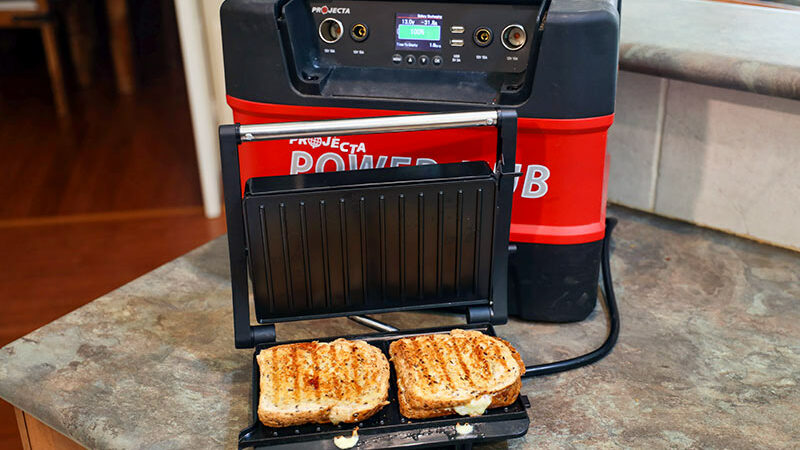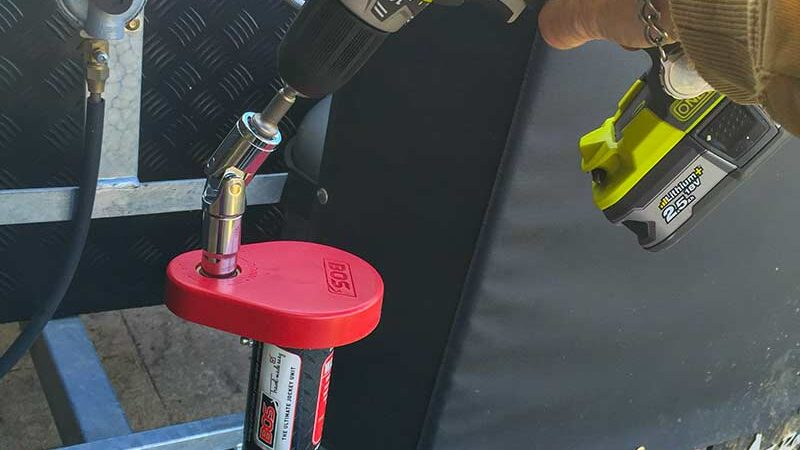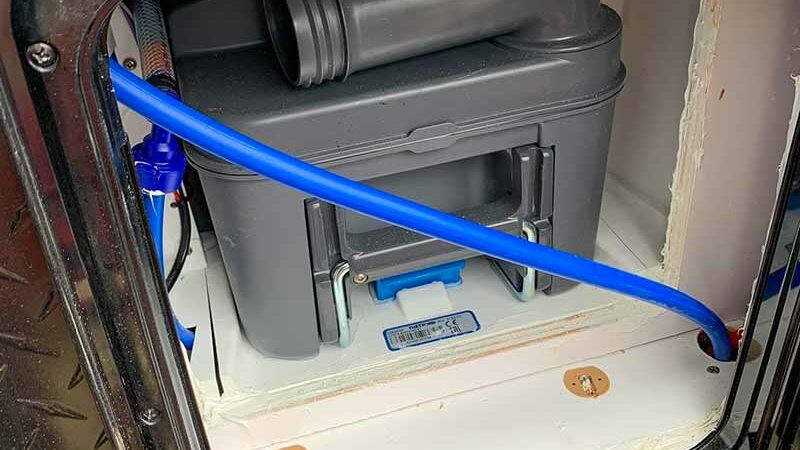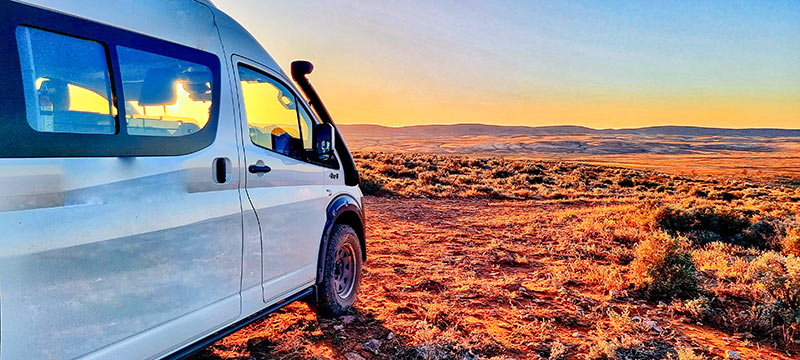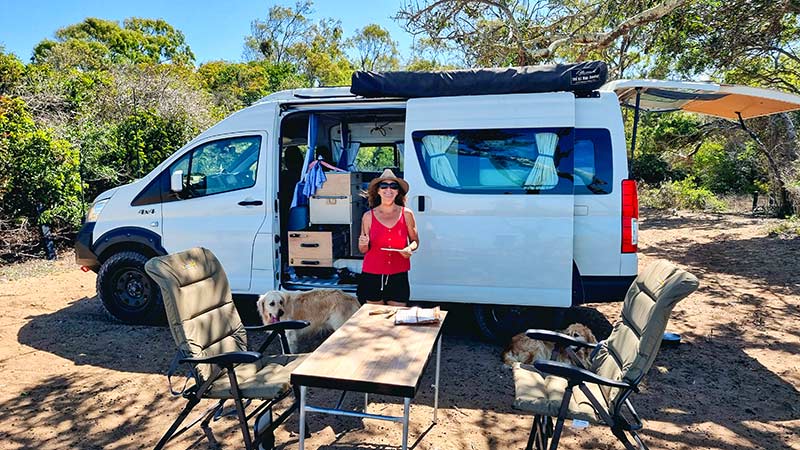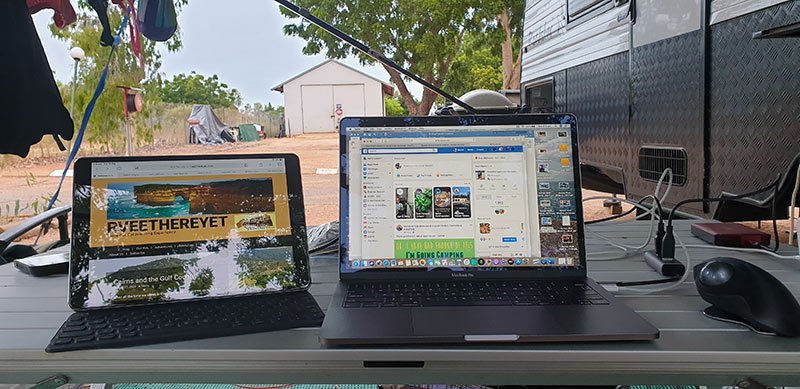Free-Camping Guide
When you arrive a caravan park, you’re usually handed a map which often includes a list of rules. In other words, you know upfront what you can do and what you can’t. And if you stray from the rules, it’s a good chance someone will alert the manager and you could find yourself evicted.
At a free camp, things are not so clear. Unless there is a camp manager or host on-site, there is no one to complain to if someone steps outside the accepted norms. This month, we want to give you a list of the dos and don’ts of free camping so that you and your fellow free-campers can have an enjoyable and relaxing co-existence.
The pandemic and the war in Ukraine have meant that prices for almost everything are on the increase, including the cost of staying at a caravan park. We were recently quoted nearly $100 per night over the upcoming Christmas break. It’s little wonder that free-camping is becoming more popular than ever. Not only is it low cost (or free), the idea of pulling up to a location and making camp for the night, or even the month, is quite appealing.
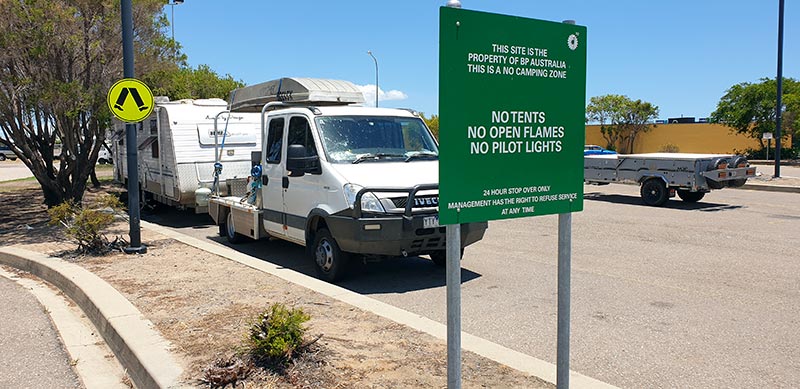
But more and more travellers are favouring free camps and that means you’re likely to run into issues with fellow travellers who may not be up to date with the ‘rules’ of free-camping.
I say ‘rules’ because many of these locations have little or no rules and, even if there are published rules, there may not be anyone in a position to enforce them. It is usually left to the individuals to do the right thing.
Here we have what you might call a set of guidelines that could be applied to any free-camping situation. Most of them are common sense but, as we know, that’s not all that common anymore.
GENERATORS
A great part of the appeal of free-camping is to get away from the crowds and experience the peace and serenity of the bush. There’s nothing that pollutes the peace quite like the throbbing buzz of a generator.
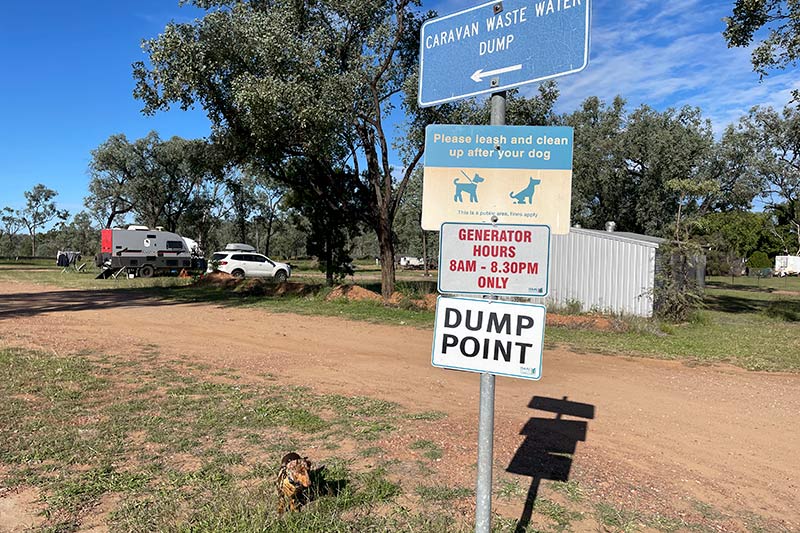
That said, the use of generators is not illegal and, for many campers who may have health conditions to manage, their use is a necessity. While solar and battery systems in RVs have come a long way, get a couple of overcast or rainy days in a row and you’ll be reaching for the generator.
If you have to use a generator, limit its use to between 9am and 8pm. If you have to use it outside of those times, have a discussion with your neighbours about your need to use it so they are aware of your situation.
You can also limit the impact of the noise of a generator by where you place it. Keep it as far away from the campground as possible and point the exhaust away from other campers.
PERSONAL SPACE
We once arrived at a free campsite that was completely deserted. We set ourselves up and went for a walk around the area. When we returned, we found another caravan parked right next to us, close enough that we could touch their van from ours through a window. And it was not as if there was no room to spread around either. The campsite was huge.
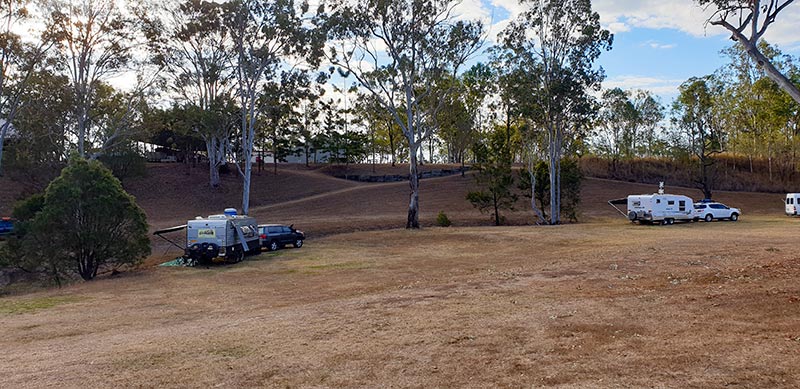
There’s no law that says you have to keep your distance from other campers but, if there is enough room to spread out, why not do so? Admittedly, there are some people who do not feel comfortable camping alone, especially at a remote location. If you would feel more comfortable camping near another camper, perhaps ask them if they are okay with you camping close to them.
We have met plenty of people in a similar situation and we have been happy for them to park nearby for added security. Just don’t assume it’s okay. People have as much right to privacy as you do to security.
While we are on the subject of space, keep in mind many free camps are quite popular and may have limited space available. In these instances, don’t hog more space than you actually need.
CAMPFIRES
Without question, one of the appeals of free-camping is the ability to have a campfire. Unfortunately, these too can be a source of conflict. Half of the problem stems from the fact that many people have little or no idea how to make a campfire that has minimal smoke. Also, some campers feel the need to build a fire that can be seen from space.
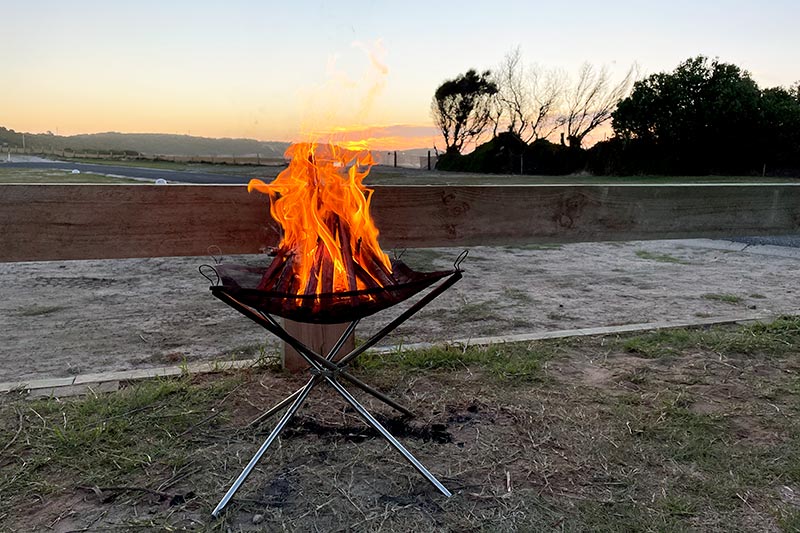
A good campfire is one that uses good, dry hardwood arranged with enough space to allow air to feed the fire and minimise smoke. If you have a portable fireplace, use it – they are usually designed to limit smoke and use less wood.
But even the most efficient fire will make smoke, and if the wind is blowing it towards your neighbour’s caravan, you may not be very popular. If the wind is not favourable, perhaps consider not having a fire at all.
MUSIC AND NOISE WHEN FREE-CAMPING
We’ve already mentioned managing the noise of a generator but there are many other sources of noise when free-camping that can annoy others.
Music is an obvious one. While there is nothing wrong with having a bit of music in the background, having it so loud that the whole campground can hear it is being unreasonable. While you might enjoy the latest from Eminem, your older neighbours may find his music offensive. You just need to be considerate of others.
Another thing to keep in mind is that, in the quiet of the outback, any noise will travel and sound louder than it might otherwise. If you’ve got a group together and you’re all enjoying a few bevvies, try to keep the festivities to a dull roar, especially late at night. 10.30pm is a good time to start dialling things down a few decibels.
RESERVING SITES
We once pulled up to a free camp in Queensland and started to reverse into what appeared to be a spare space when our neighbour told us not to park there as they were reserving the site for their friends. Now, as far as I’m concerned, when it comes to free camps, it’s first in, best-dressed, but not wanting to start a conflict, we obliged and moved to another site.
It’s not that I totally object to people wanting to be camped near their friends but at least be courteous about the situation and ask nicely. Or, better still, perhaps time your arrival with your friends so that you can sort out your plans together and not inconvenience others.
On the other side of the coin, be aware that many free camps do have allocated sites that are either booked online or through a site manager. You may be required to pay for a site and have one allocated to you before you park up. There will usually be a sign at the entrance to the camp indicating the arrangements.
DOGS
More and more people are travelling with their dogs and these present a whole new set of issues at free camps. Unlike caravan parks, there may not be specific rules concerning management of pets and some people take advantage of this.
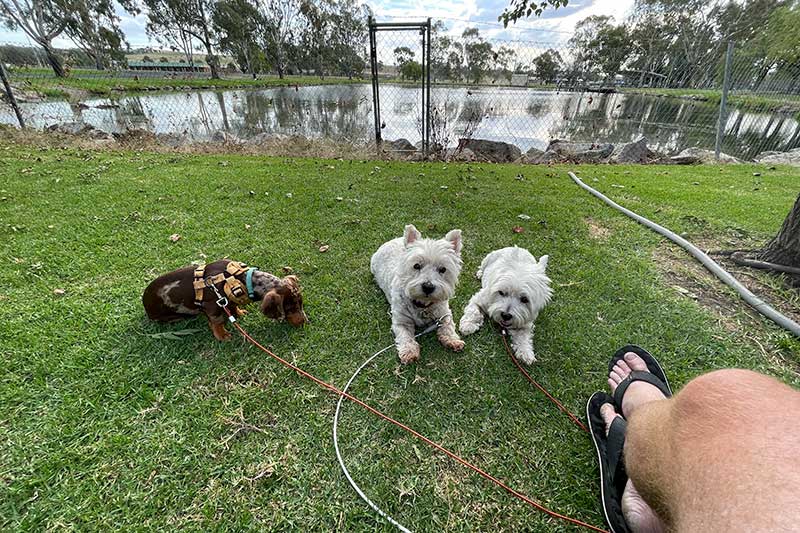
We travel with dogs and we always keep them restrained. That said, there are times when the little buggers get away from us to greet a new arrival. If this happens, get your dog and apologise.
We also discourage our dogs from barking at everyone who passes. We don’t want our dogs to be a source of annoyance to our fellow campers.
Most importantly, make sure you pick up your dog’s droppings and dispose of them responsibly. Just because it is a free camp doesn’t mean your dog’s droppings can be left in place.
GREY WATER
Next to generators, grey water would be the most controversial topic on caravan and camping Facebook groups. Some react to grey water as if it was an oil spill over the Great Barrier Reef while others don’t give it a second thought.
The problem is so bad that the full containment of grey water is a condition of use in many free camps. You’ll often hear that you must be self-contained in order to stay at a particular free camp.
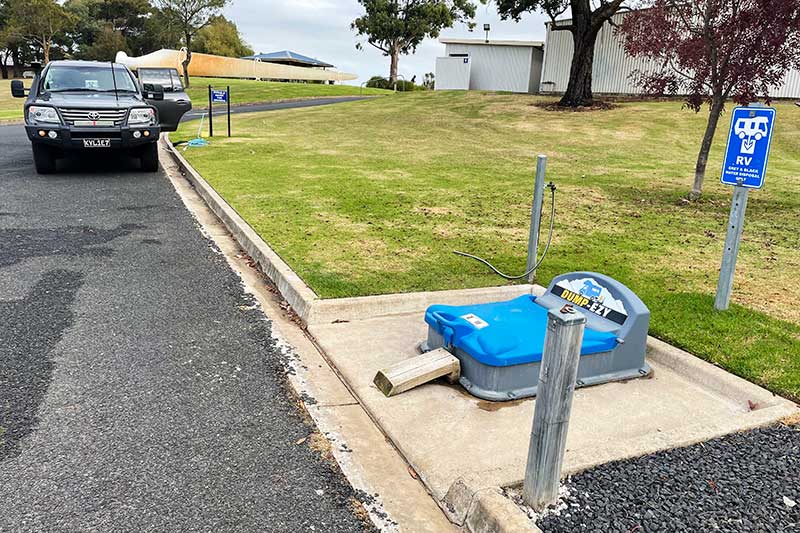
Unfortunately, the term ‘self-contained’ can mean many things. It might be okay to just collect your grey water in a bucket or portable grey water tank and dispose of it into a nearby garden or tree. Or it could mean that you must have an onboard grey water tank and you must keep that grey water stored until you find a public dump point.
Whatever the rules are, try to follow them precisely; otherwise, you run the risk of being fined by the local council or asked to leave the free camp.
If there are no restrictions on the disposal of grey water, try to be thoughtful about where yours flows. Place your grey water hose so that the flow is directed away from your neighbours’ sites and towards a nearby tree, shrub or grassed area.
RESPECT OTHERS’ PROPERTY
It should go without saying that you must treat other people’s property the same way you would have them treat yours. Unfortunately, this is not always the case. Reports of stolen expensive camping gear are becoming much more common than they ever were. We recommend that you secure your expensive equipment with chains and locks.
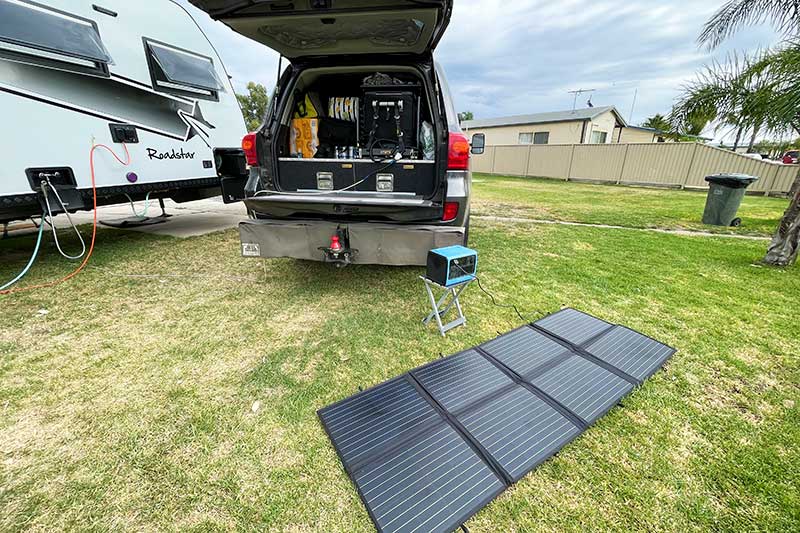
That said, we have been travelling for many years and we have generally found most campers respect the equipment of others and do everything to leave them alone.
At a free camp, external solar panels are the most used item. They are also rather expensive. If you’re driving or walking around the campground, be careful not to disturb any external solar panels set-up around you.
TOILETS
There’s no way to put this delicately except to say that the toilets found at most free camps are not kept to the same standard as what you might be used to at home. Often, they are pretty basic drop toilets. Nonetheless, you should try to be as clean as you can when using them.
Do not use them to empty your RV’s toilet cassette unless you have been directed to do so by a camp manager. Drop toilets rely on very specific biological processes and you can upset this balance with any chemicals you use, even if they are marked as ‘septic safe’. You could end up cutting access to the toilets for all campers while the damage is repaired.
KNOW THE RULES
Many free camps will have a set of rules or conditions of use. These will, most likely, be published on a sign at the entrance to the camping area. Always take notice of these signs and adhere to the rules. Many free camps have been shut down because visitors do not follow the rules.
If you can’t find any rules for the area, you may be able to find them online or by checking a camping app, such as WikiCamps. There really is no excuse for not knowing the rules.
ROADSIDE REST AREAS
At this point, we should make special note of roadside rest areas. Many travellers use these as overnight free camps. While there is absolutely nothing wrong with this, as many have been set-up for this purpose, there is much confusion when it comes to the difference between truck-only stops and those that are shared by all types of vehicles.
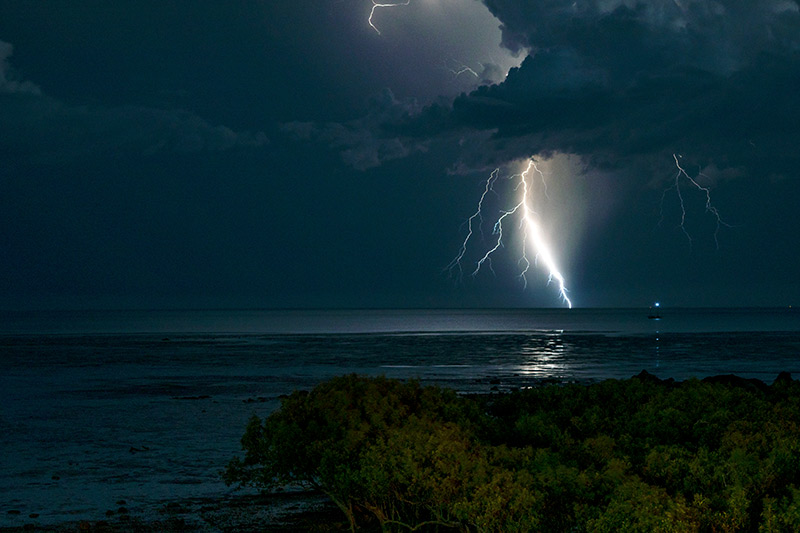
If the rest area is marked as ‘trucks only’, do not use it. They are there for truck drivers to take their mandatory scheduled rest breaks. If these areas are taken up by other vehicles, truck drivers risk having to drive further than intended and possibly driving longer than they should. They can get into serious trouble if this happens. If you have any doubts about the status of a rest area, best to find another one.
Many rest areas are intended to be shared by all types of vehicles. Often, they will have specific areas for trucks and other vehicles. When you pull into a rest area, be on the lookout for signs designating certain areas for certain vehicles.
If there are no signs indicating allocated areas, give some thought to where trucks may park and ensure you leave enough room for even the longest trucks. Remember, road trains can be up to 50m in length.
Free-camping is meant to be an enjoyable experience but it can so easily be ruined by the actions of just one or two individuals. By sticking to a few simple guidelines and by applying a little common sense, we can all ensure the experience is a good one for everyone at the campsite.
The post Free-Camping Guide appeared first on GoRV.


